Table of Contents
Quality Service Guarantee Or Painting Free

Get a rental agreement with doorstep delivery

Find the BEST deals and get unbelievable DISCOUNTS directly from builders!

5-Star rated painters, premium paints and services at the BEST PRICES!
Loved what you read? Share it with others!
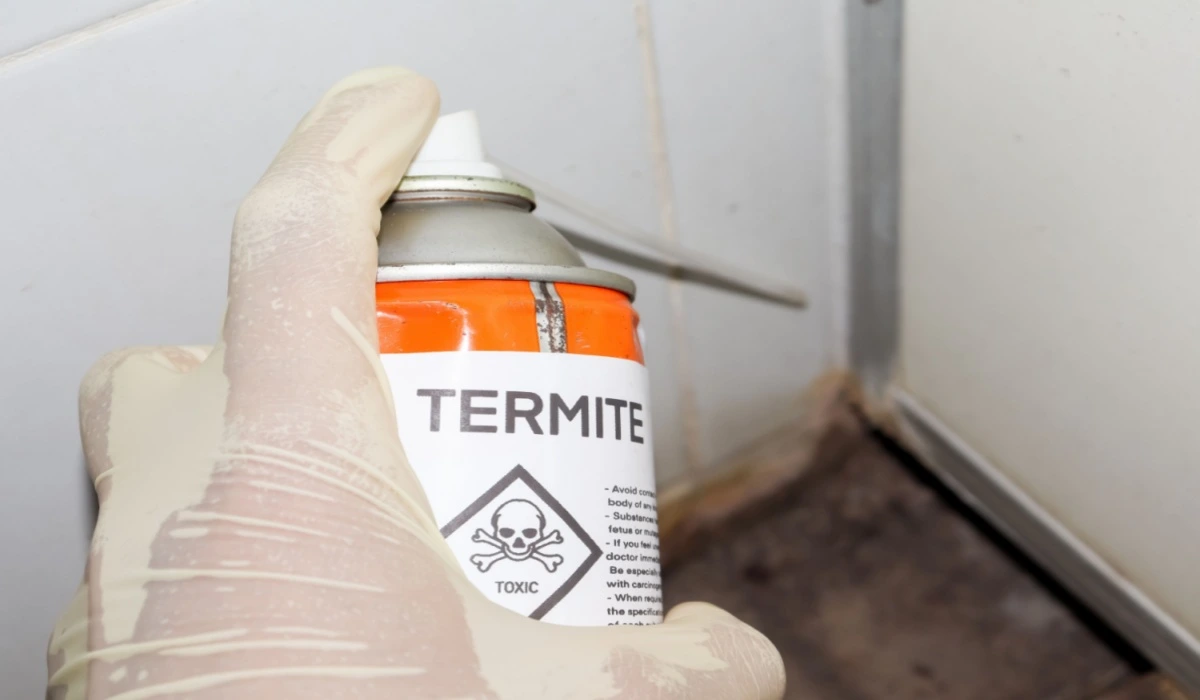

Submit the Form to Unlock the Best Deals Today
Help us assist you better
Check Your Eligibility Instantly

Experience The NoBrokerHood Difference!
Set up a demo for the entire community
10 Best Termite Killer Chemical in India for Long-Lasting Protection of Your Home in 2025
Table of Contents
Good termite treatment is very important since termites may seriously destroy buildings. Made to eliminate colonies and provide long-lasting protection, the best termite killer chemical in India considers the infestation size, location, and particular kind of termite, which will determine the appropriate product to use so that complete eradication and prevention are guaranteed.
Types of Termite Killer Chemicals
Effective management of infestations depends on choosing the suitable kind of termite killer chemical, as different compounds fit different situations and degrees of infestation. The main varieties are these:
1. Liquid Termiticides
One of the most often used products for termite treatment is Liquid termite killer. Usually, they are placed either straight on contaminated wood or on the ground around buildings. Liquid termiticides provide a chemical barrier keeping termites out of treated spaces. Widely used products with long-lasting protection, like Chlorpyrifos, are perfect for big regions or severe infestations. To guarantee complete coverage and efficacy, certain liquid therapies and Pest control for termites can, nevertheless, need expert application.
Quality Service Guarantee Or Painting Free

Get a rental agreement with doorstep delivery

Find the BEST deals and get unbelievable DISCOUNTS directly from builders!

5-Star rated painters, premium paints and services at the BEST PRICES!
2. Termite Baits
Termite baits are a focused method using poisoned bait stations scattered across the site. Attracted to the bait, termites eat it and bring it back to the colony, progressively distributing the poison. With this approach, whole termite colonies may be eradicated over time. Though slower, baiting is thought to be ecologically friendlier and more successful against subterranean termites. Usually, bait systems are combined with other techniques to achieve complete control.
3. Wood Treatments
Wood treatments attack and guard against termite damage. Often sprayed straight into furniture or buildings, these preventative and curative substances are perfect for safeguarding houses or goods sensitive to wood-boring termites. Particularly helpful in places with strong termite activity, the best termite killer spray provides long-lasting protection.
4. Foam Termiticides
Applied foam termiticides expand and are appropriate for hard-to-reach locations such as wall voids, fissures, and crevices. Chemical pest control for termites enables complete treatment, therefore preventing termite access from concealed sources. The often-utilised foams benefit construction projects, renovations, or spot treatments on existing buildings.
5. Dust Termiticides
Dust termiticides are powder-based treatments perfect for tiny, contained areas. Usually used for spot treatments in fissures or joints, termite killer chemicals provide fast relief in focused locations. Dust termiticides are a handy extra choice for mild infestations, even if they are not as long-lasting as liquid or bait treatments.
List of Best Termite Killer Chemical in India with Price and Uses
Selecting the best termite treatment solution can protect your home from extensive termite damage. Chemical treatments, including liquid termiticides and baiting systems, offer strong solutions for prevention and removal, particularly for severe infestations. Alternatives such as natural oils, heat treatments, and physical barriers may effectively manage termites for people looking for safer or environmentally acceptable solutions without using strong pesticides.
| Product Name | Product Price | Best For | Use Case |
| Chlorpyrifos 20% EC | ₹400 - ₹600 | Residential and outdoor treatments | Soil, wood, and foundation applications |
| Termirepel | ₹500 - ₹800 | Construction sites | Preventative and residential use |
| Premise SC | ₹1,000 - ₹1,500 | Subterranean termite control | Soil treatment |
| Imidacloprid 30.5% SC | ₹700 - ₹1,000 | Soil and wood protection | Structural applications |
| Fipronil 2.5% EC | ₹800 - ₹1,200 | Foundations and exteriors | Soil and foundation treatment |
| Dursban TC | ₹1,000 - ₹1,200 | Soil-based treatments | Ideal for both residential and industrial use |
| Bayer Premise Gel | ₹200 - ₹400 | Spot treatments | Small-scale, indoor applications |
| Pest Control India Termin-8 | ₹300 - ₹500 | Industrial and residential use | Versatile indoor and outdoor applications |
| Bifenthrin 10% EC | ₹900 - ₹1,200 | High-durability areas | Long-term protection for wood structures |
| Durmet TC Anti Termite | ₹600 - ₹900 | Structural construction | Suitable for large-scale applications |
10 Best Termite Killer Chemicals in India
Termite treatment chemicals like imidacloprid, fipronil, or bifenthrin are often found in the most effective termite spray for household usage. These substances have a reputation for being highly effective at getting rid of termites and stopping new infestations. For correct application, always adhere to the manufacturer's instructions.
1. Chlorpyrifos 20% EC
Chlorpyrifos, 20% EC, is highly effective and effective termite pesticides for treating soil, wood, and foundations, offering reliable protection against termite infestations in homes and construction sites.
Quick Information About Chlorpyrifos:
| Best for: | Home use and outdoor applications |
| Price Range: | ₹400 - ₹600 |
| Pros: | Long-lasting, effective on various termite species |
| Cons: | Strong odor during application |
2. Termirepel
Termirepel is the best anti termite spray in India, ideal for preventative treatments in new constructions, helping keep properties termite-free for extended periods with low toxicity and eco-friendly properties.
Quick Information About Termirepel:
| Best for: | Construction and residential properties |
| Price Range: | ₹500 - ₹800 |
| Pros: | Preventive treatment, eco-friendly |
| Cons: | Not ideal for severe infestations |
3. Premise SC
Premise is a best termite killer medicine that is powerful against subterranean termites, making it perfect for soil treatments that protect building foundations and exterior areas.
| Best for: | Subterranean termite control |
| Price Range: | ₹1,000 - ₹1,500 |
| Pros: | Effective on tough infestations |
| Cons: | Higher price |
4. Imidacloprid 30.5% SC
Imidacloprid is one of the best chemical to kill termites and provides long-lasting protection for wood and soil structures, making it a versatile option for termite control in various applications.
| Best for: | Structural and wood treatments |
| Price Range: | ₹700 - ₹1,000 |
| Pros: | Durable, multi-purpose |
| Cons: | Slower action |
5. Fipronil 2.5% EC
Fipronil, 2.5% EC, is effective for exterior treatments and the best insecticide for termite control, forming a water-resistant barrier ideal for damp or moisture-prone areas.
| Best for: | Exterior and foundation treatments |
| Price Range: | ₹800 - ₹1,200 |
| Pros: | Durable, water-resistant |
| Cons: | Professional application recommended |
6. Dursban TC
Dursban TC is the best termite killer spray in India. It is commonly used for soil treatments and provides comprehensive protection in both residential and commercial spaces.
| Best for: | Soil treatments |
| Price Range: | ₹1,000 - ₹1,200 |
| Pros: | Long-lasting, deep-penetrating |
| Cons: | Requires caution due to toxicity |
7. Bayer Premise Gel
Premise Gel is a user-friendly, affordable spot treatment solution that effectively manages small termite infestations indoors.
| Best for: | Indoor spot treatments |
| Price Range: | ₹200 - ₹400 |
| Pros: | Easy to use, low cost |
| Cons: | Limited to minor infestations |
8. Pest Control India Termin-8
Termin-8 is versatile for both indoor and outdoor use and one of the best chemicals to kill termites in India, effectively eliminating termites in industrial and residential settings.
| Best for: | Industrial and residential |
| Price Range: | ₹300 - ₹500 |
| Pros: | Versatile, reasonably priced |
| Cons: | Needs reapplication |
9. Bifenthrin 10% EC
Known for its durability, Bifenthrin 10% EC provides long-lasting protection, especially for wood structures in high-risk areas. It is the best termite killer spray for wooden structures in India.
| Best for: | High-traffic or high-risk areas |
| Price Range: | ₹900 - ₹1,200 |
| Pros: | Long-lasting, effective on wood |
| Cons: | Expensive |
10. Durmet TC Anti Termite
Durmet TC Anti Termite is the best medicine for termite treatment. It is suited for large-scale termite treatments, especially in construction and structural projects where high-strength protection is necessary.
| Best for: | Large structural applications |
| Price Range: | ₹600 - ₹900 |
| Pros: | Strong and effective |
| Cons: | Not suited for minor issues |
How to Choose the Best Termite Killer Chemical for Your Needs?
Tackling infestations and safeguarding your home depends on selecting the best termite-killing chemicals in India. These are some important things to give thought to:
- Identify the Type of Termite: Different compounds are developed to target certain kinds of termites, including dry wood or subterranean ones. Knowing the type of termite facilitates the treatment choice best for long-term control.
- Assess the Infestation Level: Professional-grade solutions or Safe termite chemicals are often required for severe infestations. Lighter solutions, like bait systems or wood treatments, could work for mild or limited issues. Select a product suitable for the degree of the termite issue.
- Consider Application Area and Type: The best termite pesticide to use depends on the application site—soil, timber, wall cavities, or structural foundations. While certain pesticides are ideal for directly defending wooden buildings, others are soil-specific and stop termites from entering.
- Evaluate Product Longevity: Termiticides differ in their longevity. Choose termite prevention solutions for long-term protection, including soil treatments with a long lifespan. Especially in high-risk locations, spot treatments or foams may require more frequent reapplication.
- Check Safety and Environmental Impact: If you use the best chemical for anti-termite treatment in homes or near pets and youngsters, think about low-toxin or environmentally friendly substitutes. Products like termite baits are usually safer and can be used near humans and animals with little danger.
- Professional vs. DIY Application: Professional application may be required to guarantee thorough and efficient treatment in large infestations or difficult-to-reach locations. Smaller infestations call for easy do-it-yourself solutions.
Examining these elements will help you choose the termite killer chemical most appropriate for your situation and offers the greatest protection for your property.
Application Methods of Termite Killer Chemicals
Reaching good outcomes from the best methods for termite control depends on using them correctly. The major approaches of application are as follows:
- Direct Liquid Application: Direct application of liquid termiticides to soil or wood forms a protective barrier against termites. Treating infected places, such as foundations or wooden buildings, this approach is widely employed to stop termites from invading and ruining these surfaces.
- Soil Treatment: Soil treatments use liquid termiticides injected into the earth surrounding a building's foundation to form a chemical barrier that keeps termites out of buildings through tunnelling. For subterranean termites, especially, soil treatments provide long-lasting protection for structures and residences.
- Baiting Systems: Poisoned bait kept at stations all over the property powers baiting devices. Attracted to the bait, termites eat it and bring it to the colony, progressively eradicating the colony. Ideal for continuous control, bait stations are a slower strategy but provide a focused approach and the least effect on the surroundings.
- Foam Termiticides: Following application, foam termiticides expand to cover wall spaces, fissures, and crevices. This approach works well for getting to secret locations where termites sometimes live. Because they provide thorough coverage, foams are perfect for spot treatments in existing buildings or during construction projects.
- Dust Termiticides: Powder—based dust termiticides can usually be used as supplementary therapy or for mild infestations. A suitable application technique guarantees maximum chemical protection against termites and efficiently reaches the infestation. They are applied to tiny, limited areas like cracks or joints.
Alternatives to Chemical Treatments
For individuals looking for chemical-free termite treatment for home, there are numerous workable choices. Among the greatest substitutes for chemical treatments are these:
- Natural Oils: Termite-repellent essential oils, such as orange and neem oil, work. Orange oil has d-limonene, a chemical that kills termites when in contact, while neem oil inhibits termite development and reproduction. Applied straight to wood surfaces, these eco-friendly termite killers are perfect for mild infestations.
- Heat Treatment: High heat may eradicate termites by bringing the temperature of affected regions to levels that are deadly for termites. For confined infestations, this approach is successful and leaves no chemical residue. Usually, however, pest control professionals handle it and call for specialized tools.
- Electrocution: Electrocution uses electrical currents to target and kill termites in wooden buildings. Effective in limited, precise regions of infestation, this targeted, instantaneous approach is often paired with additional therapies for complete control, and this method demands accuracy.
- Physical Barriers: Effective non-chemical remedies are physical ones like stainless steel mesh and sand. Usually erected during construction, these barriers provide a long-lasting preventative solution free of chemicals by keeping termites off buildings.
- Boric Acid: Applied to wood surfaces, boric acid is a low-toxin powder used to discourage termites. Boronic acid disturbs termite digestion processes and finally kills them. It is perfect for minor infestations and safe for household usage. Every natural termite solution presents a workable, non-chemical method for termite management, therefore offering environmentally acceptable, secure solutions for safeguarding buildings and furniture from termite damage.
What You Should Know
Evaluating the kind and degree of the infestation, application area, and safety considerations will direct you toward the optimal termite treatment for your needs. Whether choosing do-it-yourself natural remedies or professional-grade chemicals, the Best termite killer chemical in India guarantees long-term peace of mind and safety. Using regular inspections, preventative treatments, and application of a suitable control strategy; termites will be kept under control, therefore protecting the safety and worth of your house or company.
Frequently Asked Questions
Ans: The most effective termite killer chemicals target the specific type of termite infestation. Liquid termiticides like Chlorpyrifos and Premise SC are popular for large-scale infestations, while termite baiting systems are effective for gradual colony elimination. The choice depends on the infestation's severity and location.
Ans: Some chemical treatments can be harmful if not applied properly. However, many products are designed to be safe for pets and children once the treated area has dried or the recommended waiting period has passed. Always follow the manufacturer's instructions for secure application and re-entry times.
Ans: The frequency of termite treatments depends on the product used. Liquid termiticides can last up to 5 years, while termite baits may require replenishing every few months. It's important to conduct regular inspections and reapply treatments when necessary, especially if you notice signs of termite activity.
Ans: Green pest control for termites, such as neem oil, boric acid, or heat treatments, can be effective for small infestations or as preventive measures. However, chemical treatments may be required to ensure the complete elimination of larger or more established infestations.
Ans: Signs of a termite infestation include mud tubes on walls, damaged or hollow-sounding wood, discarded wings near windows or doors, and visible termites in or around your property. Regular inspections by a pest control professional can help detect an infestation early before significant damage occurs.
Loved what you read? Share it with others!
Most Viewed Articles
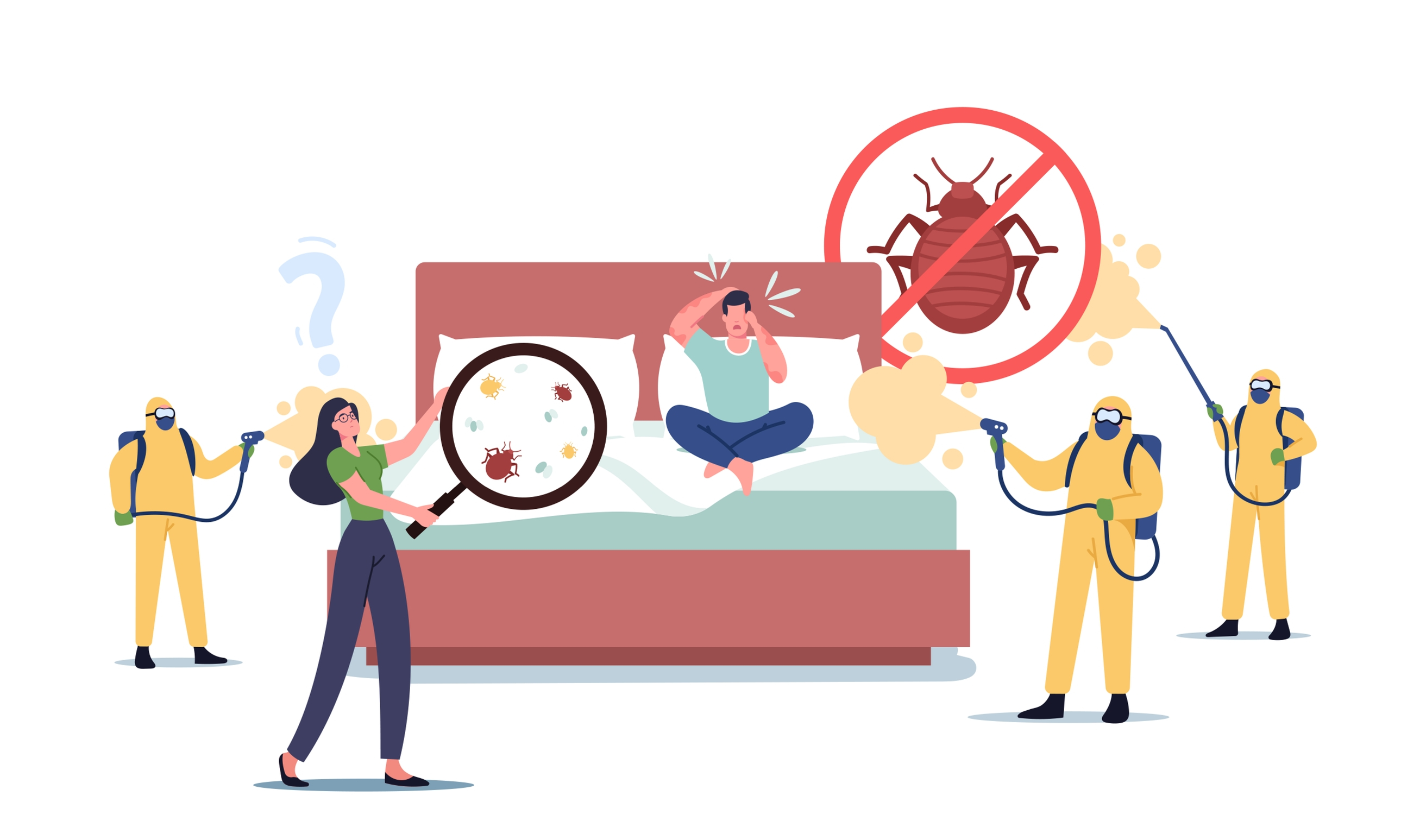
10 Ways to Eliminate Cockroaches from Your Homes Forever!
December 17, 2024
76094+ views
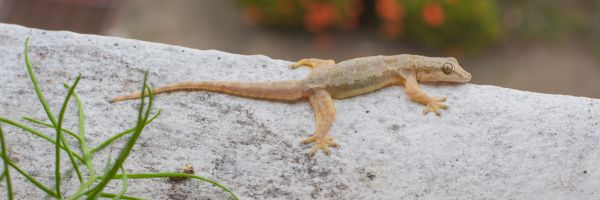
How to Get Rid of Lizards at Home Without Killing Them?
December 17, 2024
23007+ views
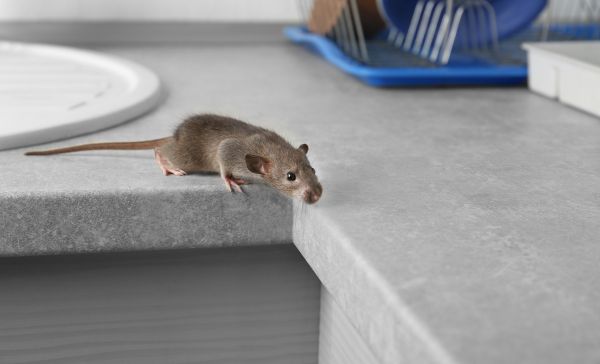
Proven Tips and Tricks on How to Get Rid of Small or Big Rats at Home
December 17, 2024
16934+ views
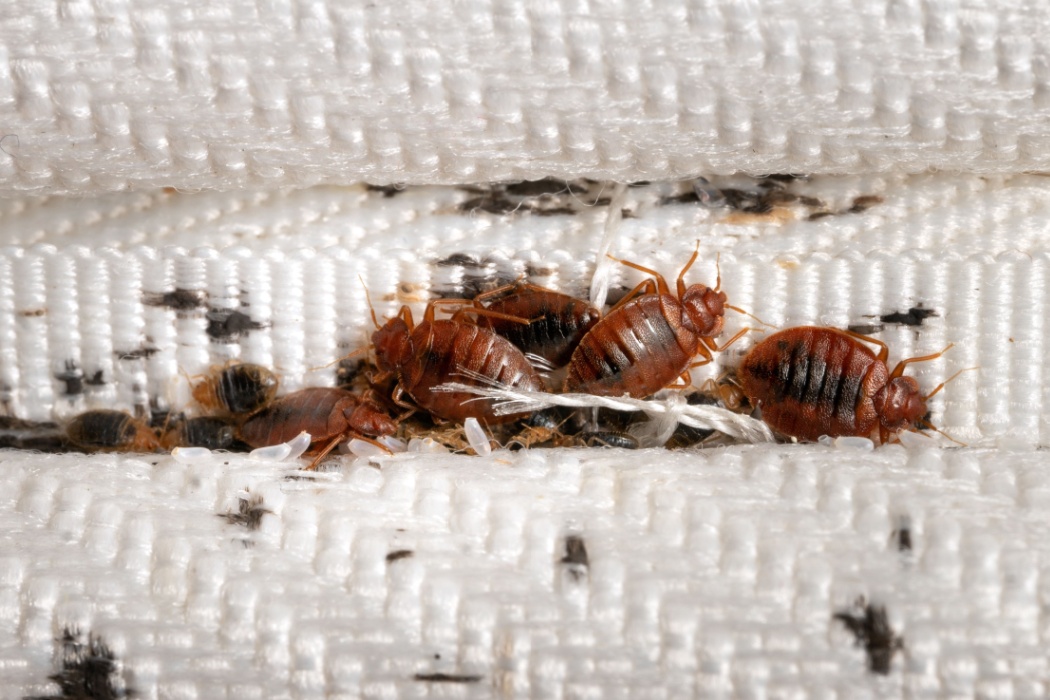
How to Get Rid of Bed Bugs: Best Tips and Natural Methods for a Pest-Free Home in 2025
December 19, 2024
14203+ views
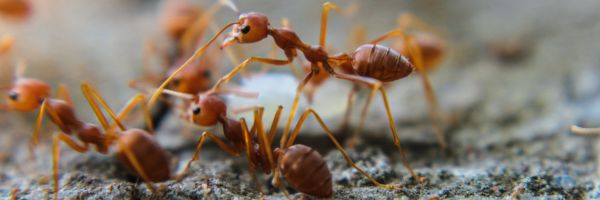
Here’s How to Get Rid of Ants Permanently in Your House
December 19, 2024
13641+ views
Recent blogs in
How to Get Rid of Mosquitos at Home?
December 27, 2024 by Susan
Here’s How to Get Rid of Ants Permanently in Your House
December 19, 2024 by Susan
How to Get Rid of Bed Bugs: Best Tips and Natural Methods for a Pest-Free Home in 2025
December 19, 2024 by Susan
Proven Tips and Tricks on How to Get Rid of Small or Big Rats at Home
December 17, 2024 by Susan
How to Get Rid of Lizards at Home Without Killing Them?
December 17, 2024 by Susan




Join the conversation!